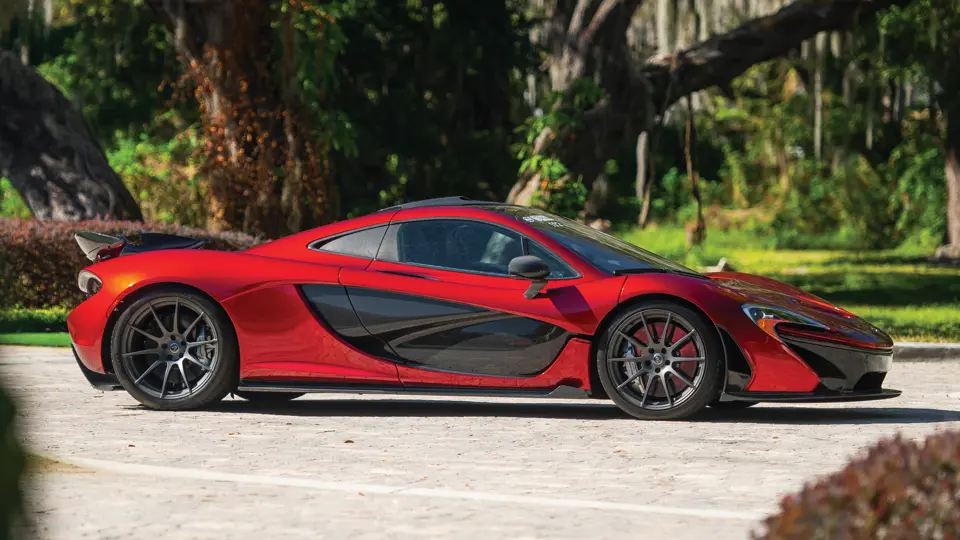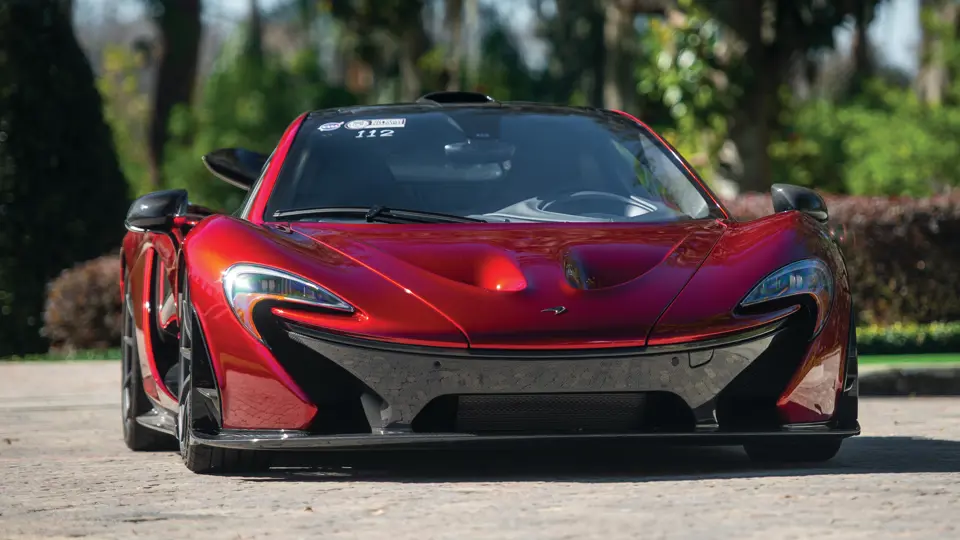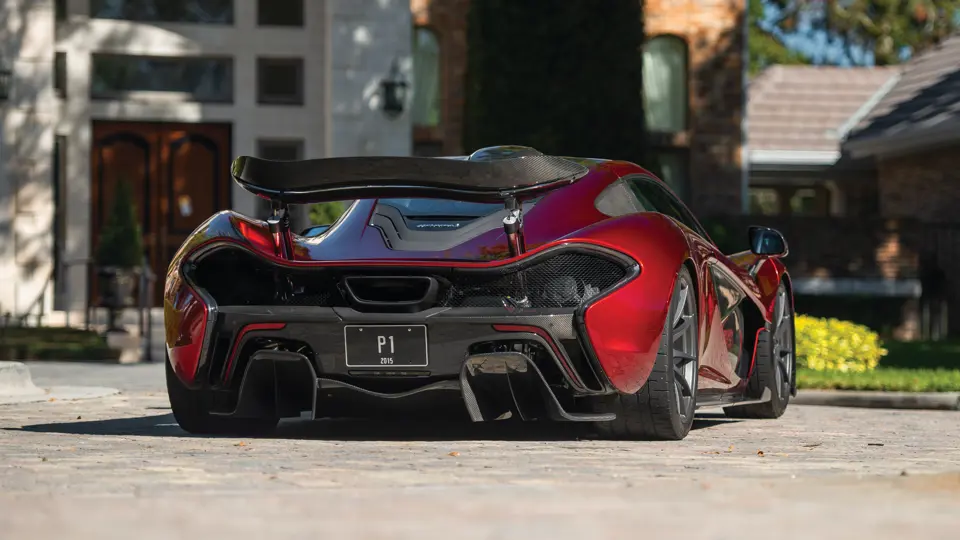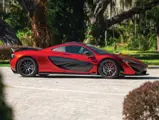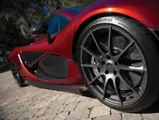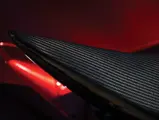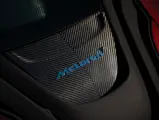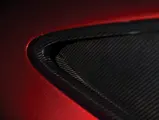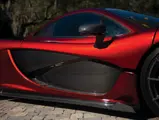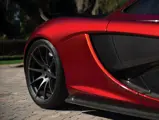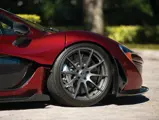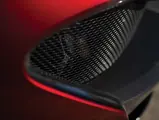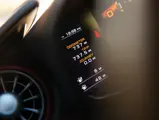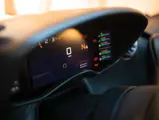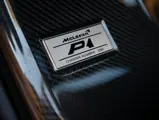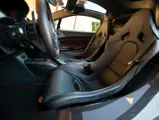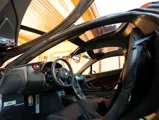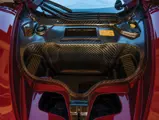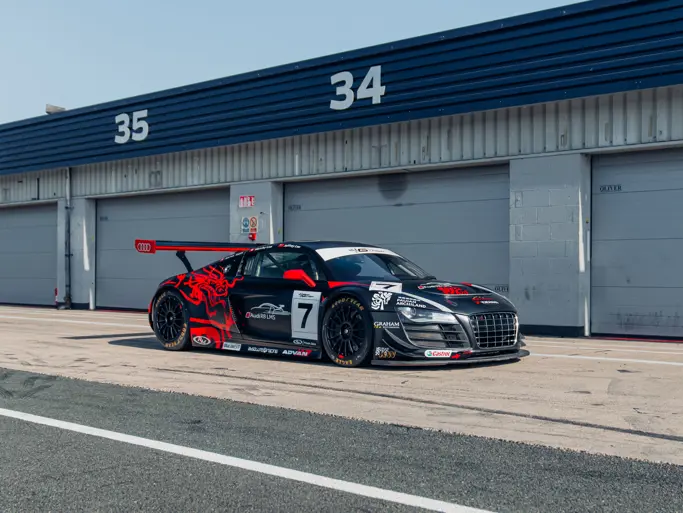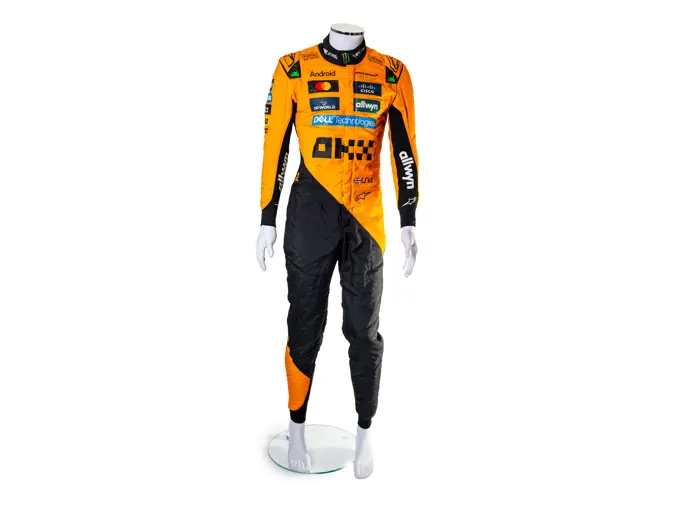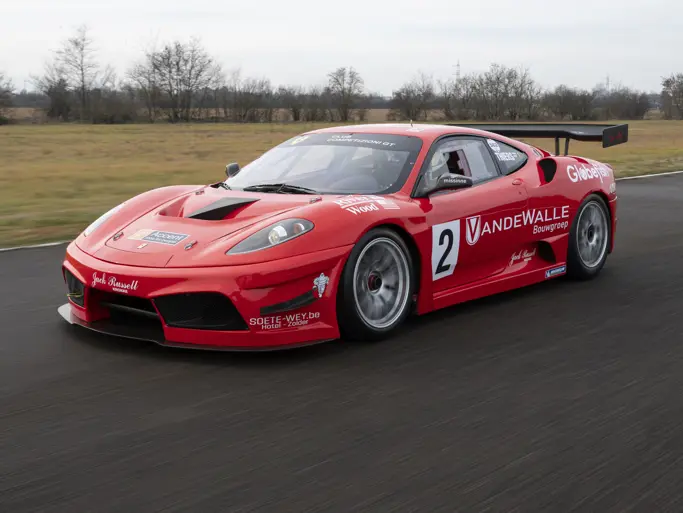
2015 McLaren P1
{{lr.item.text}}
$1,490,000 USD | Sold
{{bidding.lot.reserveStatusFormatted}}
- One of only 375 examples built
- Two owners from new; less than 750 miles
- Finished in striking Volcano Red, a $10,850 option
- Timed at 205.296 mph in the standing mile at the John F. Kennedy Space Center
- Recently serviced by McLaren Tampa; fitted with a new primary battery
By 2013, almost 10 years after the last Ferrari Enzo, Porsche Carrera GT, and Mercedes-Benz SLR McLaren had left their respective factories, it was clear to most enthusiasts that a new supercar war was brewing. Test mules were spotted out and about, and from what one could see and hear from these heavily camouflaged beasts sprinting around test tracks, or in extreme locales for hot or cold weather testing, the hypercar had come a long way in the ensuing decade.
“Hybrid” was the word on everyone’s mind, and supercar marques would be developing their own hybrid technology to serve as testbeds for similar systems appearing in future production cars. These hybrid systems not only served to offset carbon emissions due to tightening regulations, but also used the technology to increase performance to a level that was never thought possible.
Having just returned to road-car production with the spectacular MP4-12C, McLaren was poised to produce a “new F1,” a car that would proudly reaffirm the McLaren’s place atop the supercar world. This new car would go head-to-head with the likes of Ferrari and Porsche and show that McLaren was at the forefront of automotive performance, design, and technology.
THE McLAREN P1
Built around a carbon monocoque chassis weighing just 90 kg and carbon-fiber body panels, McLaren followed a relentless pursuit to make the P1 as light as possible. The wheels, 19 in. up front and 20 in. at the rear, weigh just 7.94 kg and 9.27 kg, respectively. They are made of a high-strength aluminum alloy, offering incredible strength at minimal weight. McLaren reengineered the car’s windscreen glass to be only 3.2-mm thick, reinforcing it with a plastic interlayer and saving 3.5 kg over the windshield in the MP12-4C. The interior carpet was deemed a luxury too costly in terms of weight and was deleted entirely. McLaren even chose to leave the carbon fiber in the cockpit non-lacquered, saving a further 1.5 kg. The P1 weighs in at a total dry weight of just 1,395 kg.
Sporting adjustable front and rear wings, the latter a Formula 1-style Drag Reduction system, aerodynamics followed a similar pursuit of perfection. The P1 develops as much as 600 kg of downforce at 160 mph. The unique carbon-fiber disc brakes, developed in conjunction with Akebono, are infused with silicon-carbide, helping to dissipate heat and absorbing 50 percent more energy than those on the MP4-12C. Adding to the effectiveness of the brakes, the McLaren P1 utilizes Brake Steer, a technology originally developed by McLaren for the 1997 F1 season before it was banned. This system applies the brakes to the car’s inside rear wheel when cornering too quickly, which brings the P1’s nose closer to the apex.
While the combustion engine appears nearly identical to that seen in the earlier MP4-12C, there is in fact nothing further from the truth. The block is a completely different unit from entirely new casting and boasts dry-sump lubrication with a low-sited flat plane crankshaft. The mid-mounted 3.8-liter twin-turbo V-8 itself produces 727 hp at 7,300 rpm and 720 Nm of torque at 4,000 rpm.
As in most other hybrids, the electric motor is intended to provide an alternate source of power to provide for greater fuel efficiency. However, the McLaren P1 is certainly not “most hybrids.” The electric motor in the P1 serves to “torque-fill” or supplement the normal gaps where the conventional engine would fail to produce peak performance, such as during gearshifts or at low rpms while the turbochargers are spooling up, to provide the driver with maximum power at all times. The electric motor produces 176 hp, bringing total output to an incredible 903 hp.
Needless to say, performance is astounding. The P1 takes just 2.8 seconds to reach 100 km/h and 6.8 seconds to reach 200 km/h. The P1 will reach a quarter-mile in an astounding 9.8 seconds. The speedometer will read 300 km/h in 16.5 seconds, a full five seconds faster than the F1, on its way to an electronically limited top speed of 350 km/h (217 mph). Incredibly, aside from the world-class performance figures, the McLaren’s average combined fuel consumption is 34 mpg.
STANDING MILE – 205.296 MPH
Purchased new by its original owner, Florida-based super car collector Don Wallace, Mr. Wallace worked directly with McLaren’s Special Operations (MSO) department to create not one, but two cars built to his demanding specifications. McLaren’s Volcano Red was chosen for the exterior color, an eye-catching and eye-watering $10,850 option. Further accentuated by black “stealth” finished wheels, the car’s Volcano Red finish is also featured on certain elements on the car’s interior, including the switches, vent bezels, door inserts, and contrasting red seat stitching. Upon selling the car in 2015, Mr. Wallace commented that “of all the cars I have raced over the years and the supercars that I have had the pleasure of owning, this P1 is by far the fastest street-legal machine I have ever driven. It is terrifyingly quick, and performance is absolutely incredible. Many thanks go to McLaren and the extra efforts they made on my behalf.”
In 2015, the P1 was acquired by its second owner, also based in Florida, and it has been very well kept and maintained in his collection since. In March 2016, the P1 participated in a standing mile competition at the Shuttle Landing Facility at the John F. Kennedy Space Center in Merritt Island, Florida. At the competition, the P1 handedly earned the fastest run of the day and was the only car to break the 200-mph barrier, clocking an impressive 205.296 mph at the mile marker. The car continued to accelerate, topping 214 mph at 1.25 miles before slowing down at the end of the runway. It is believed that this was the fastest standing mile ever completed for an unmodified car. More recently, the P1 has been fully serviced at McLaren Tampa where it was fitted with a new primary battery.
Only 375 P1s were built, making it the rarest of the hybrid hypercar trio. As such, it will surely remain collectable not only for its rarity, but for its innovative performance and stunning good looks. Benefitting from just two owners, less than 750 miles, and following a fresh service, this P1 is ready to be driven (at top speed!) and enjoyed by its next custodian.

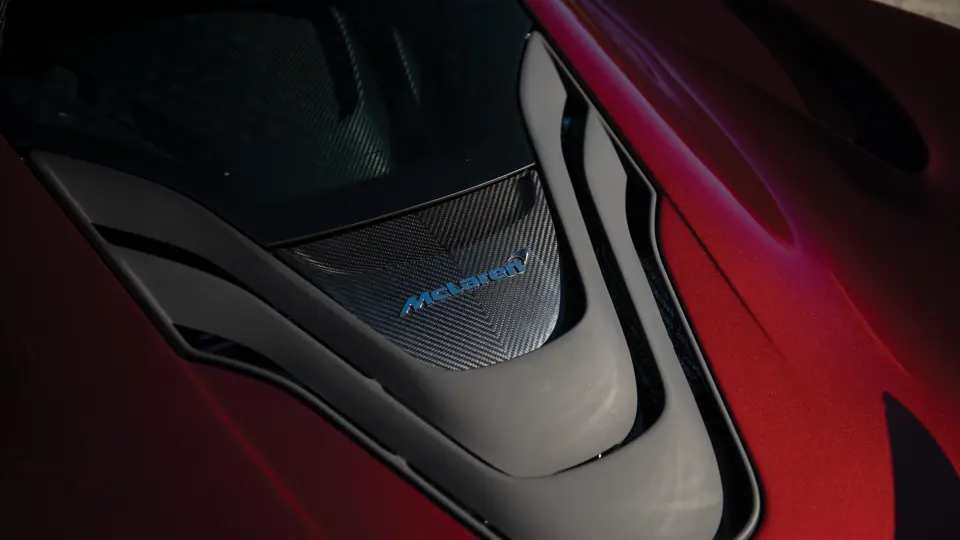
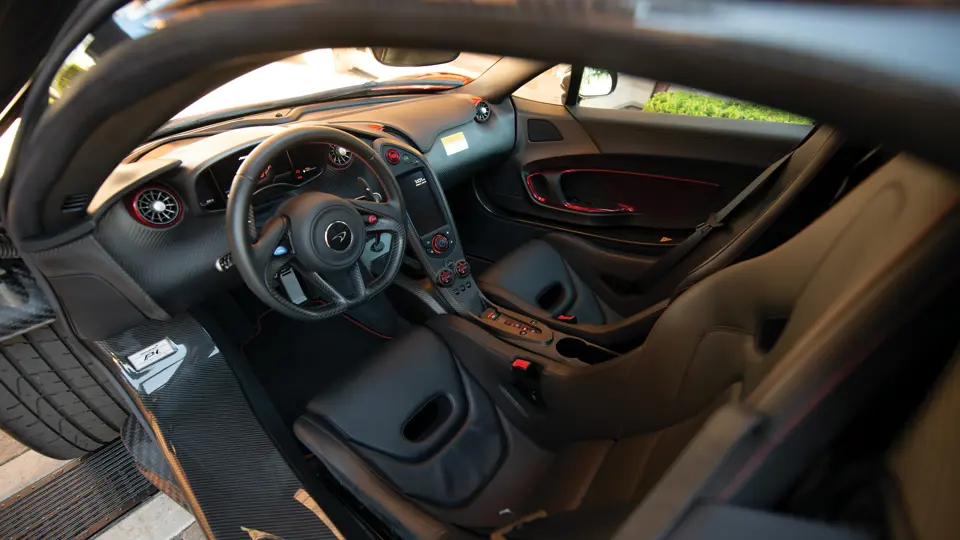

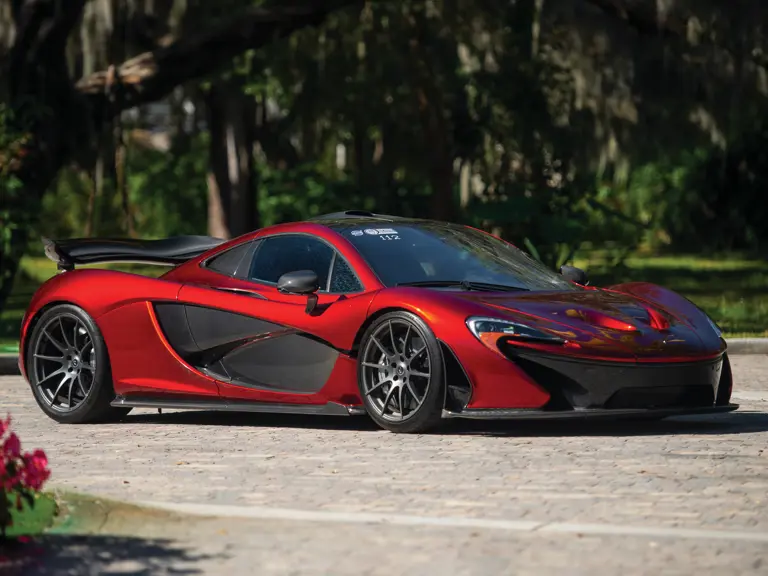
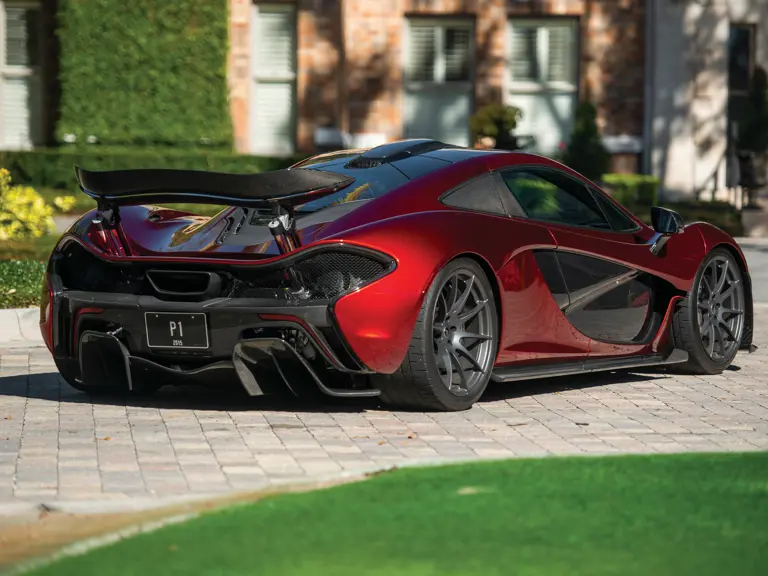
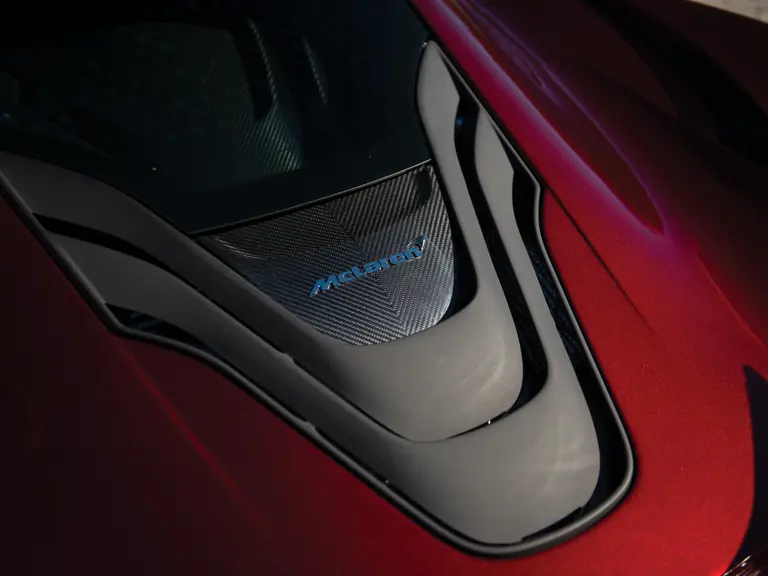
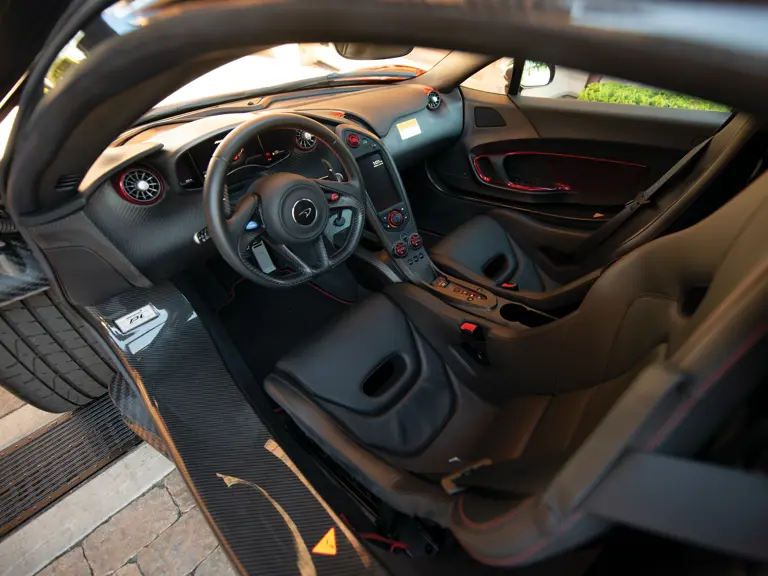
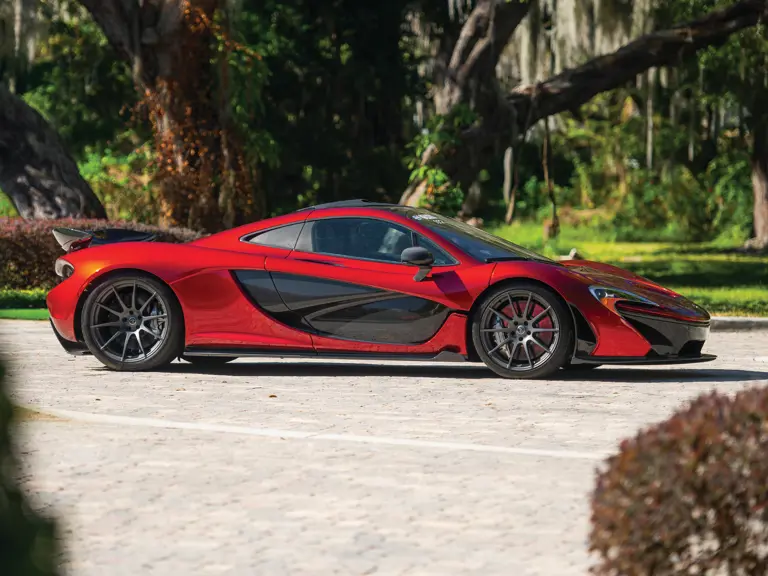
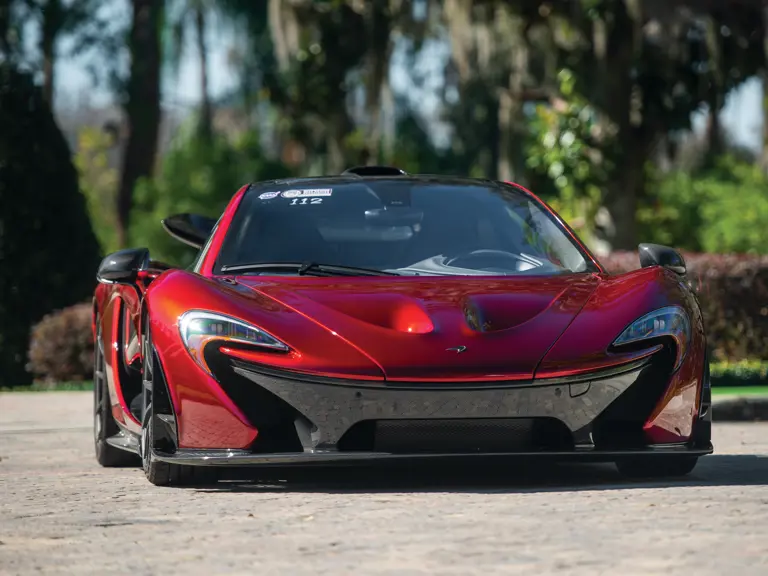
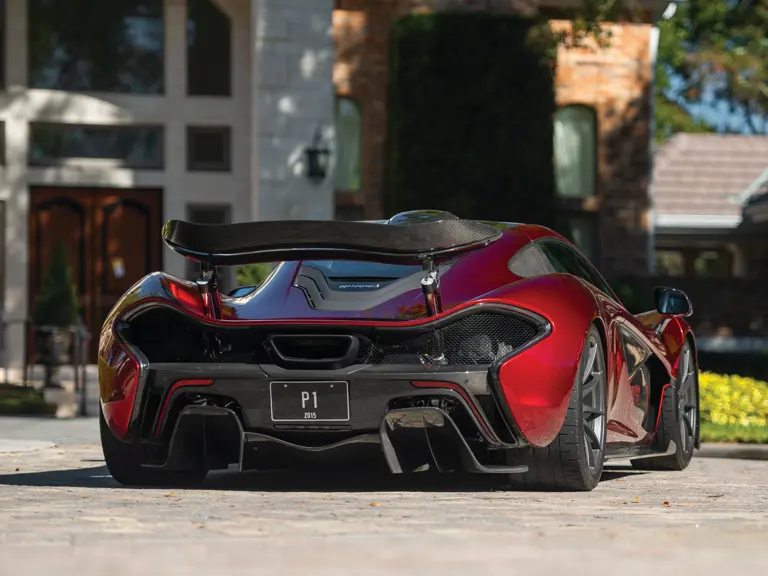
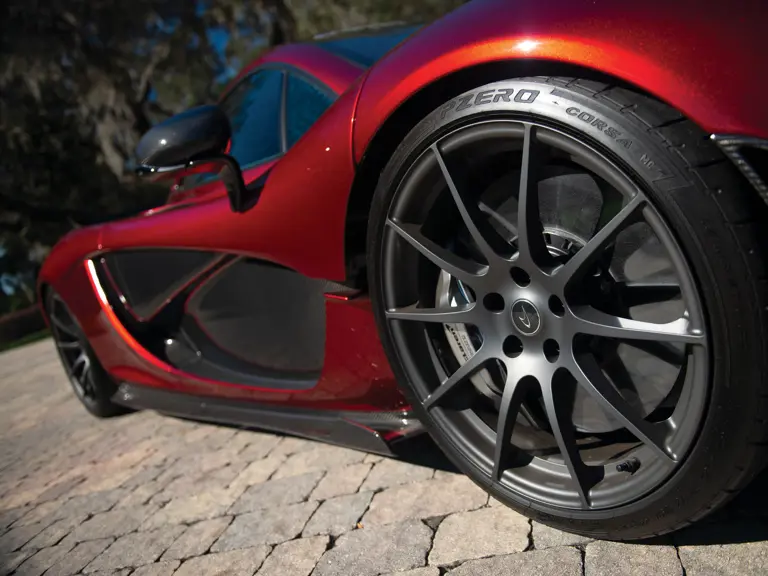
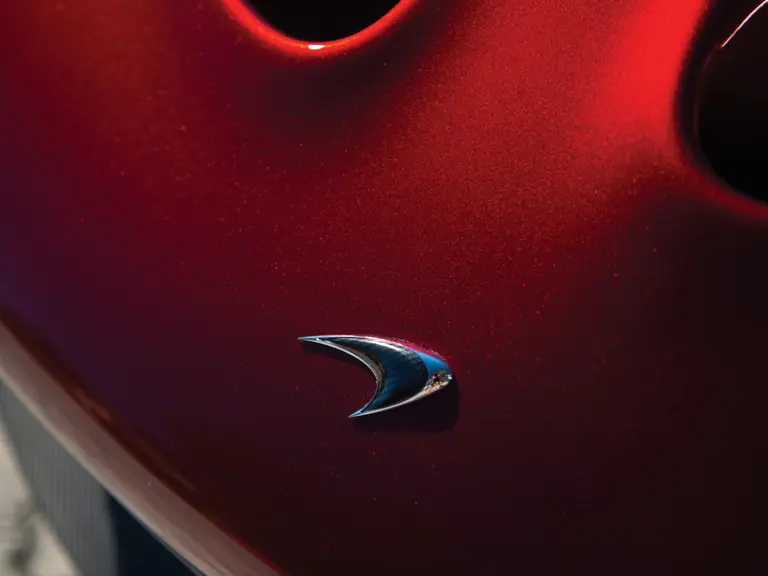
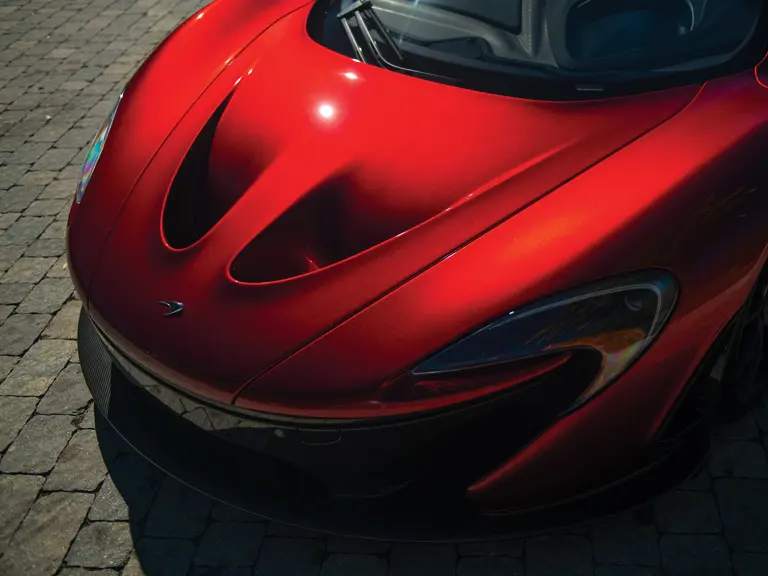
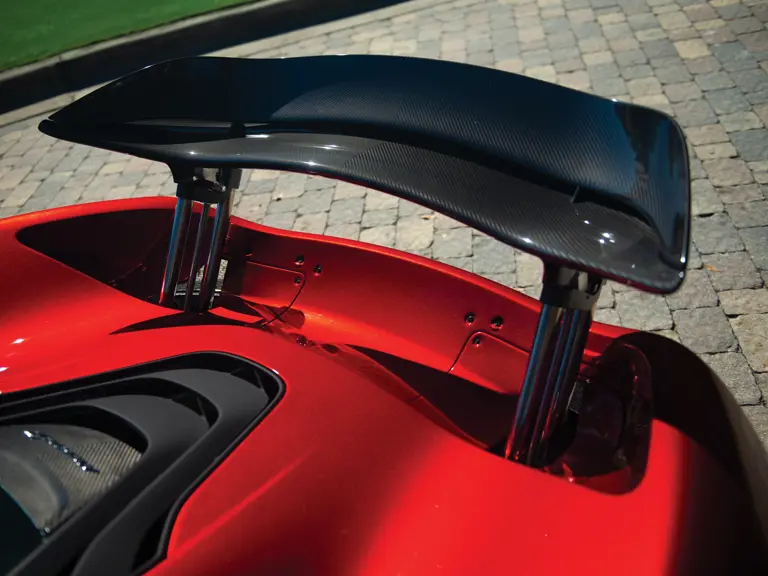
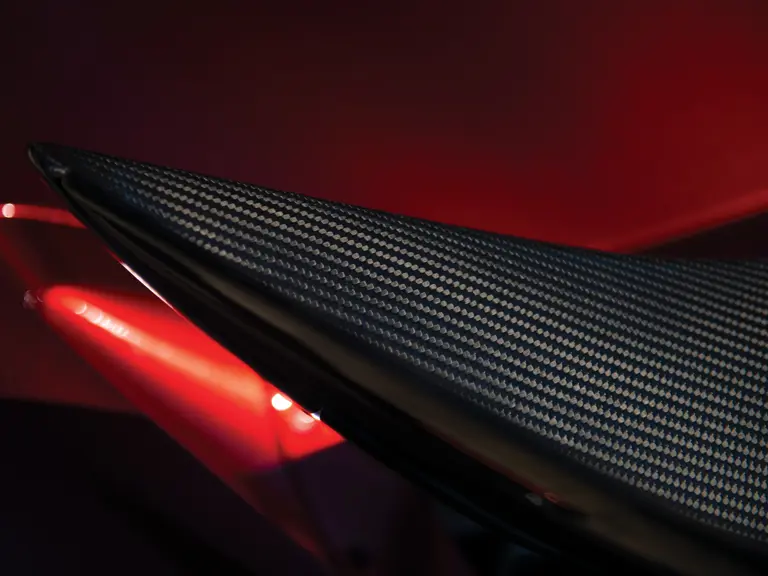
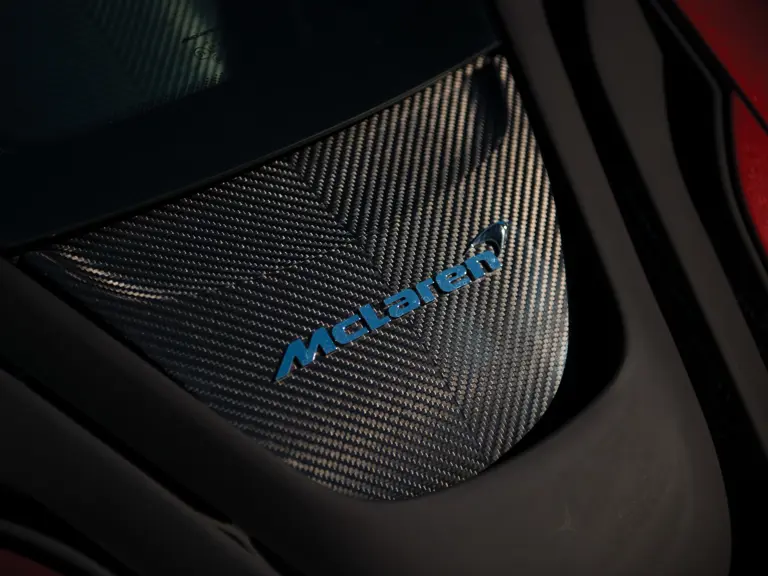
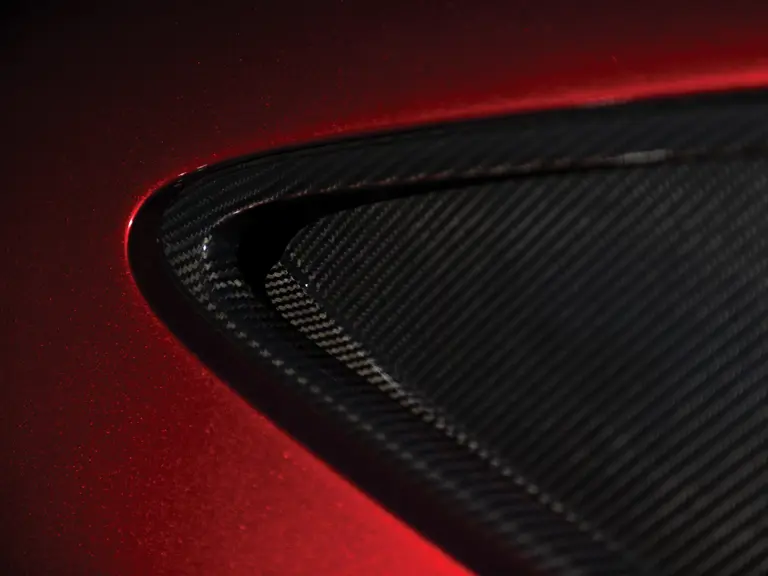
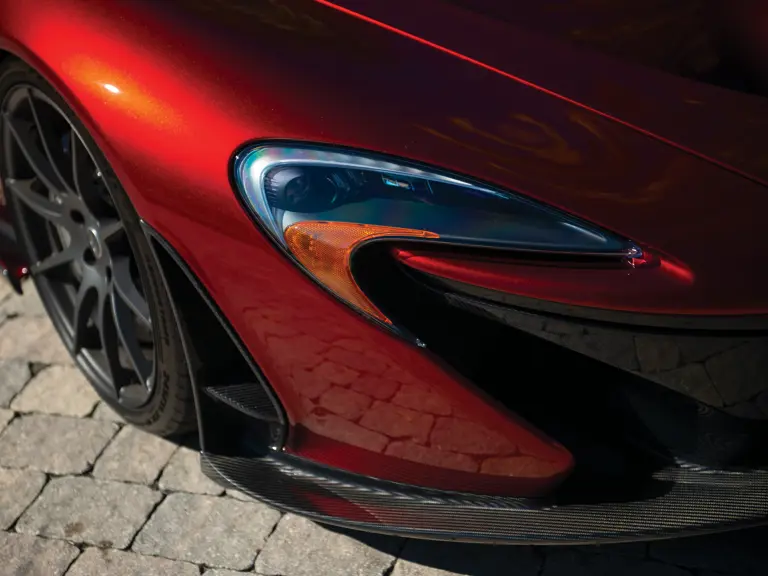
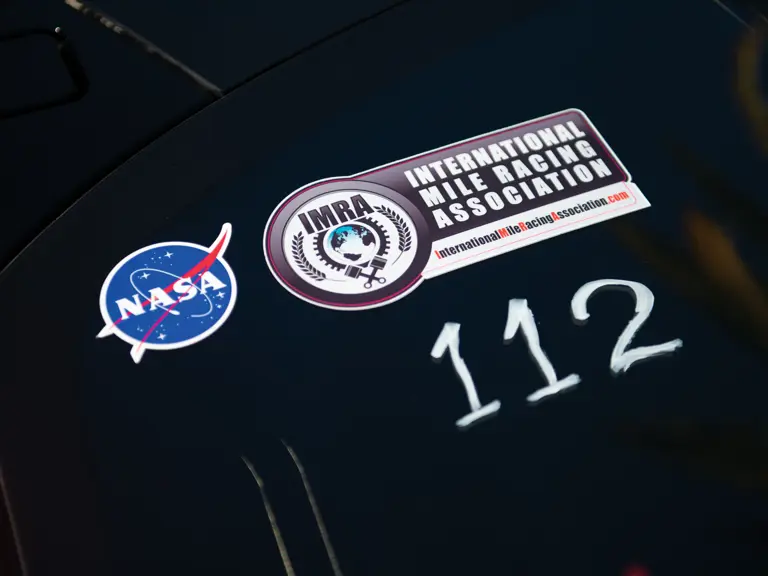
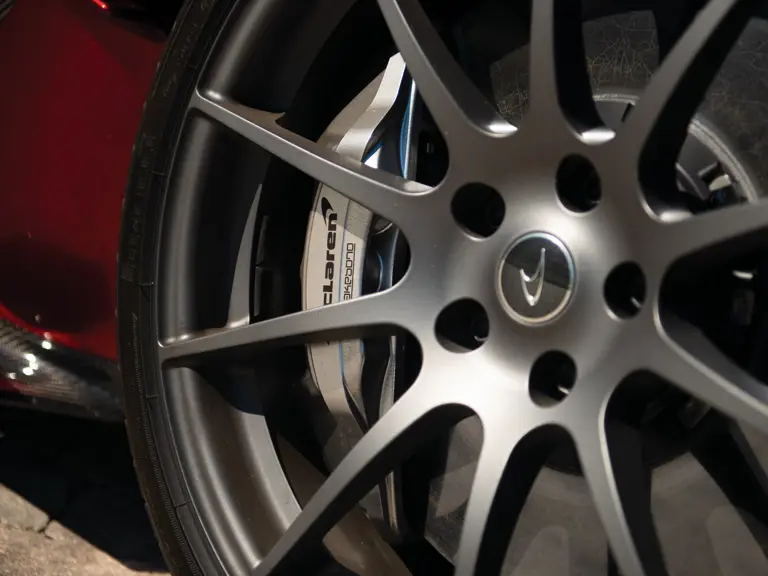
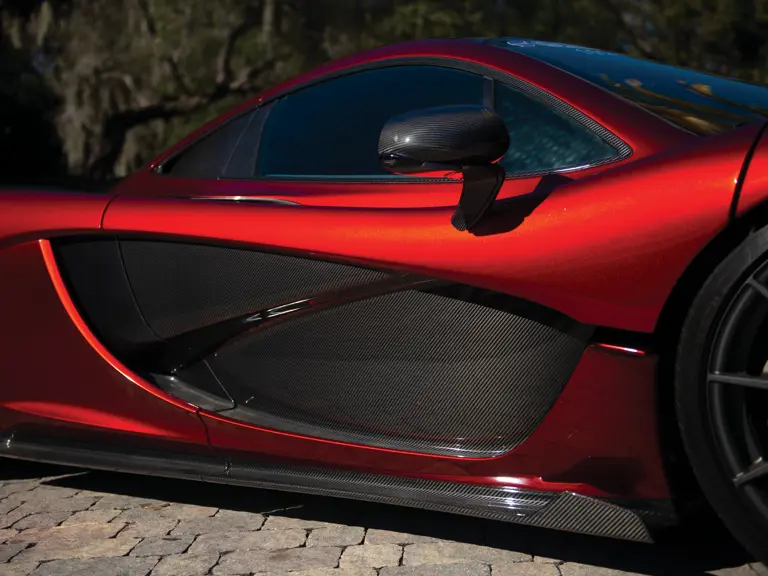
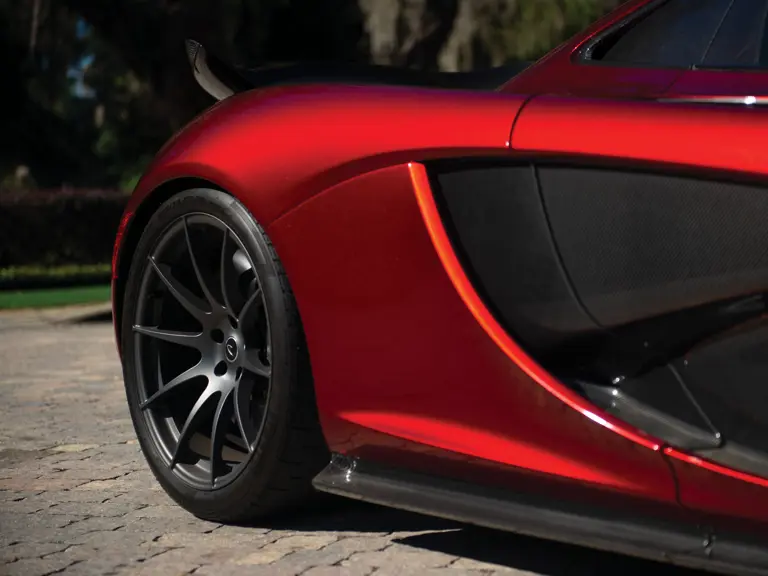
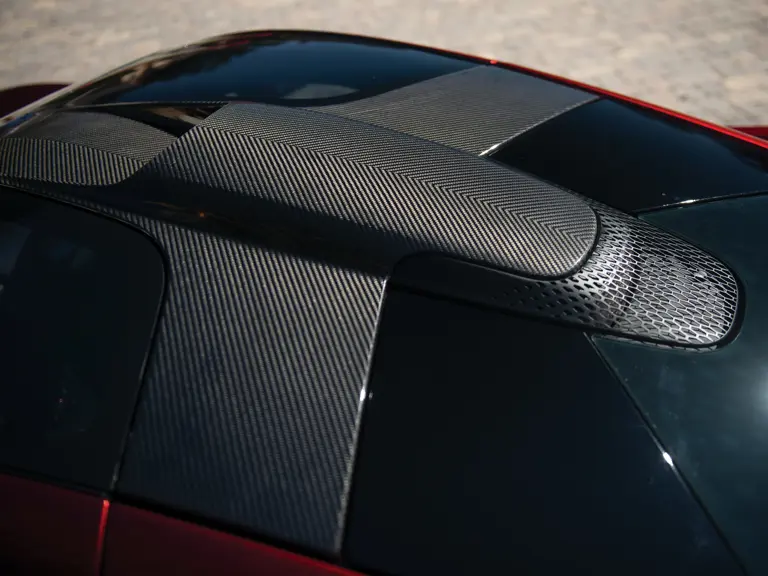
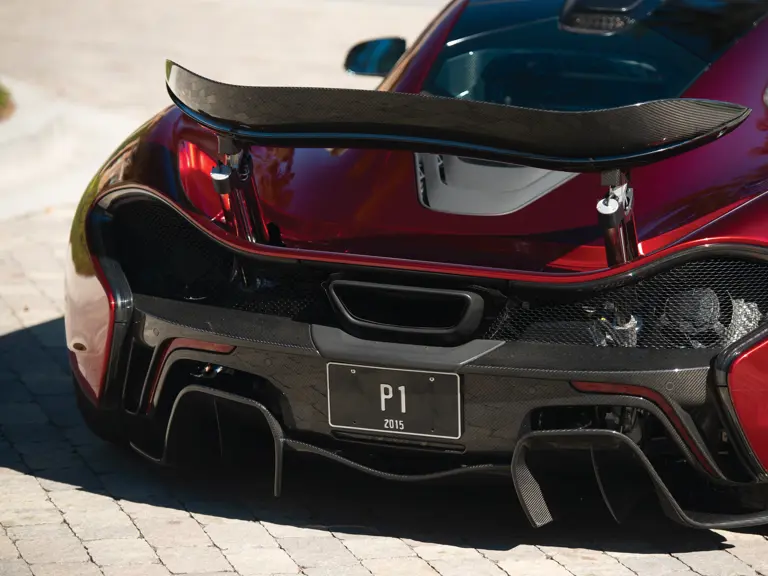
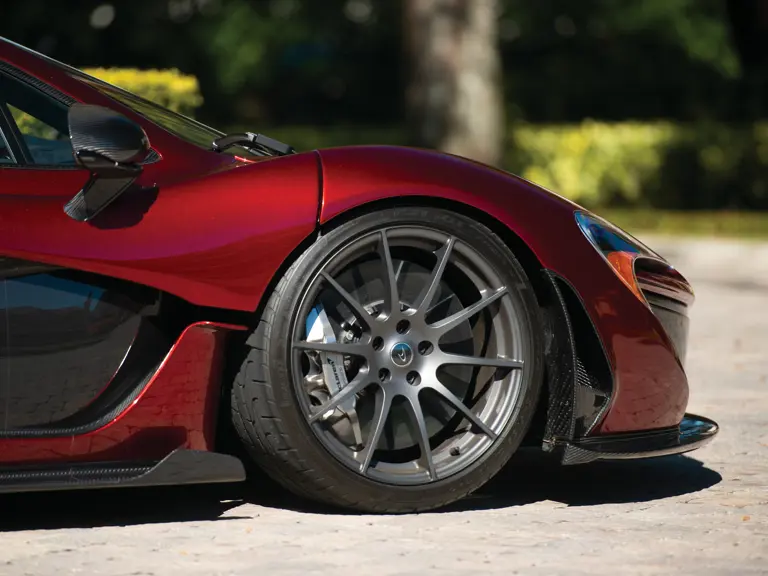
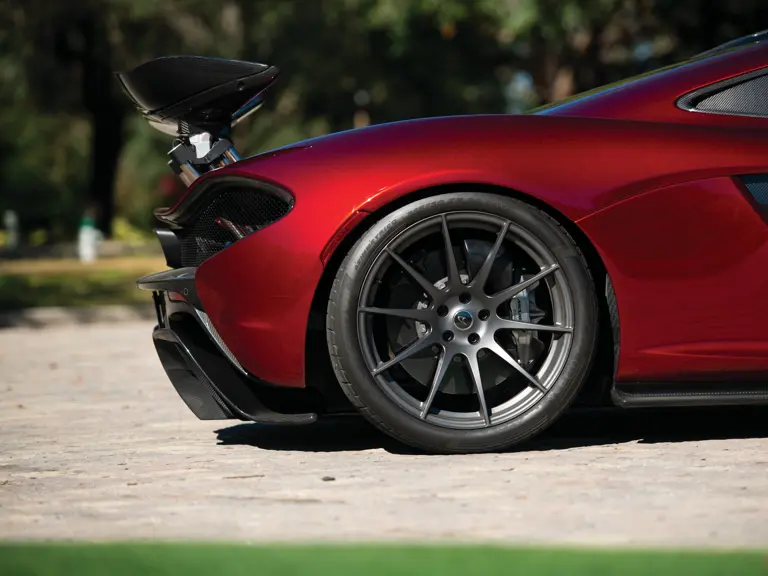
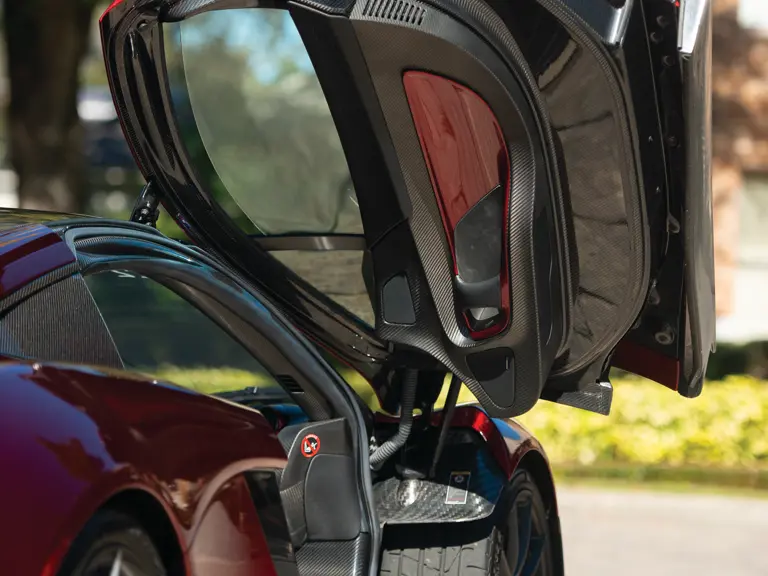
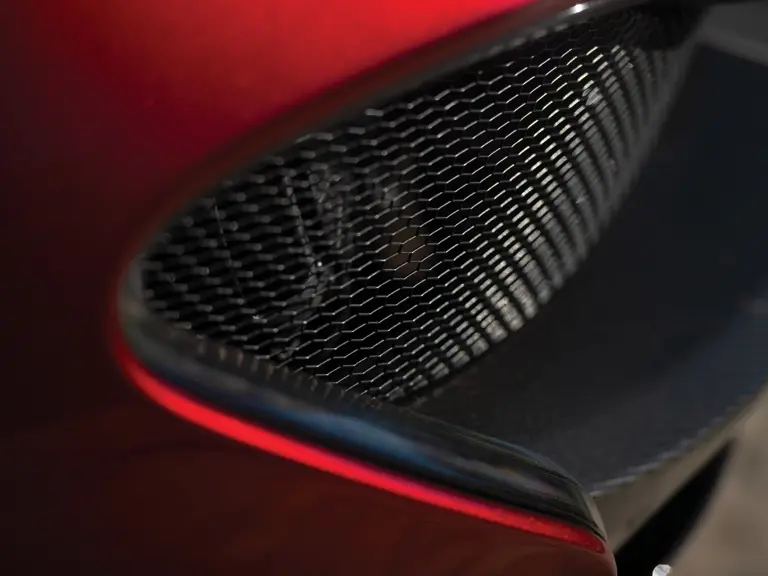
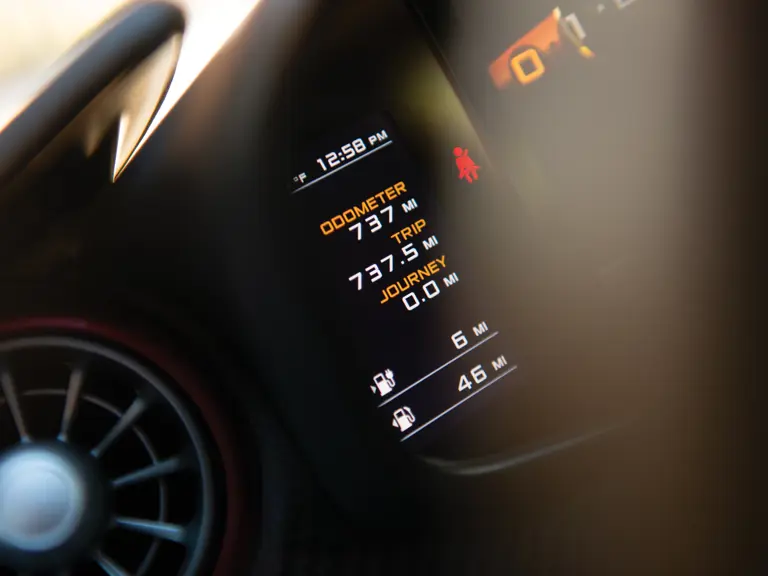
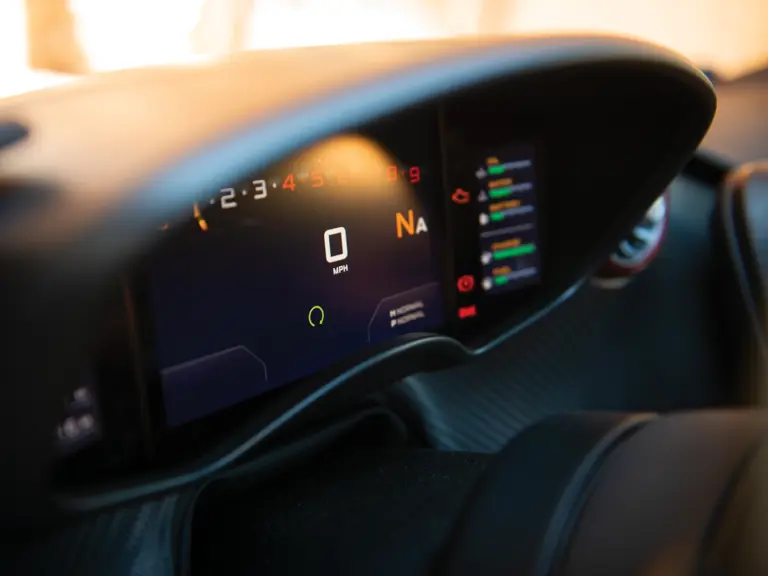
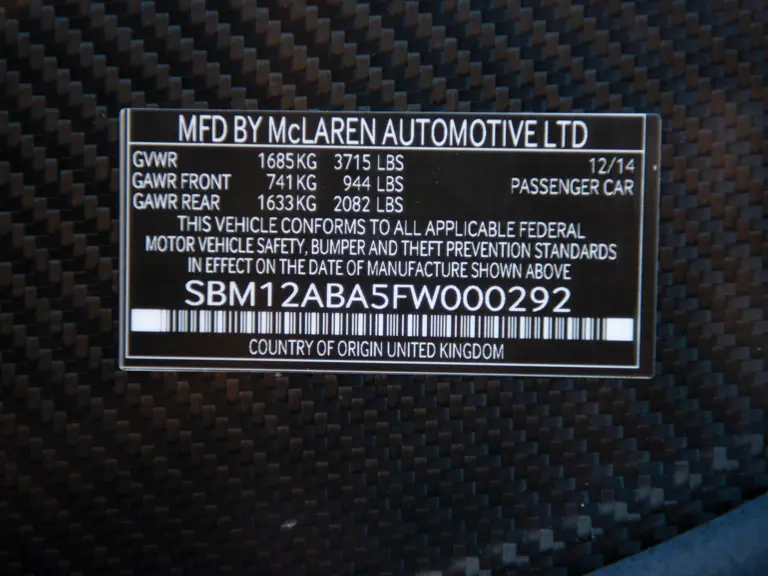
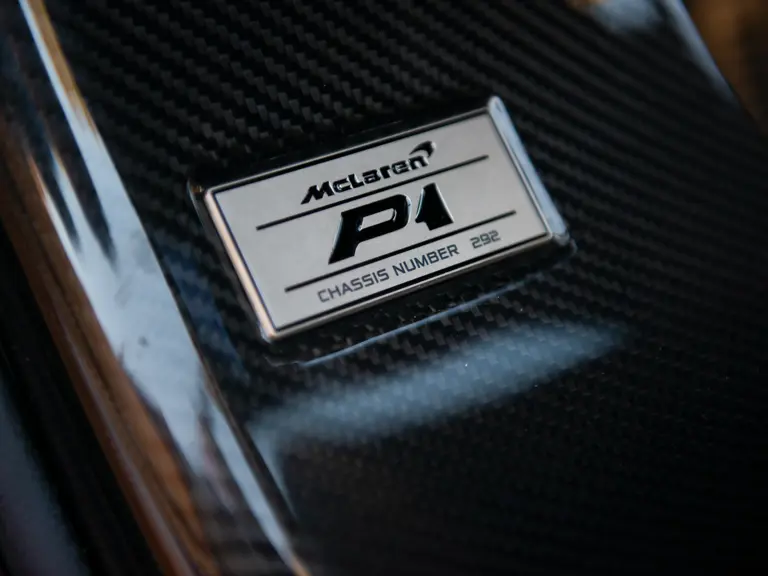
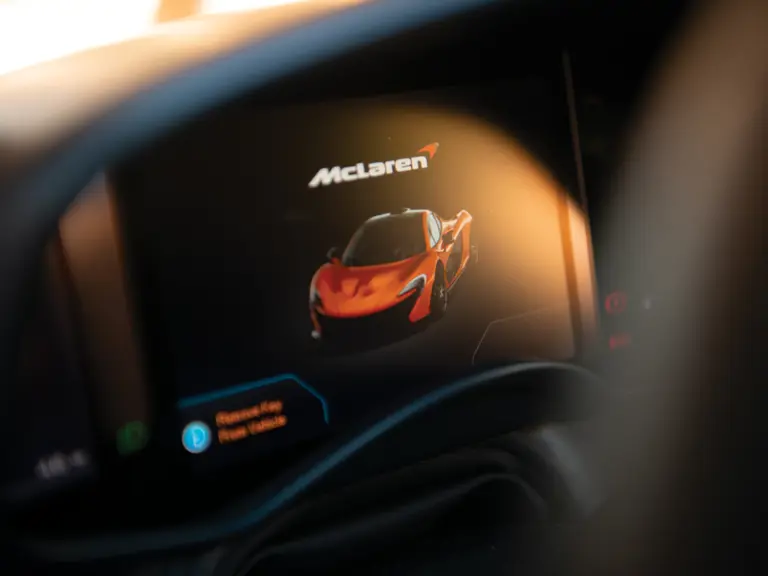
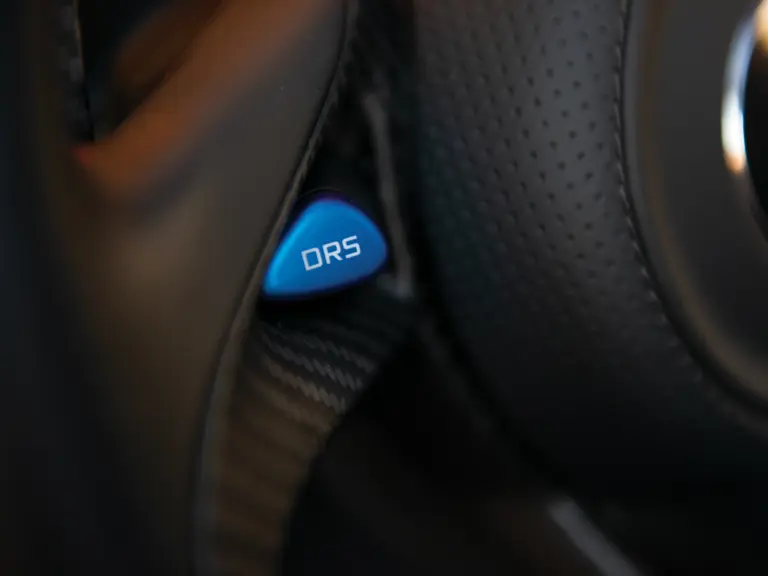
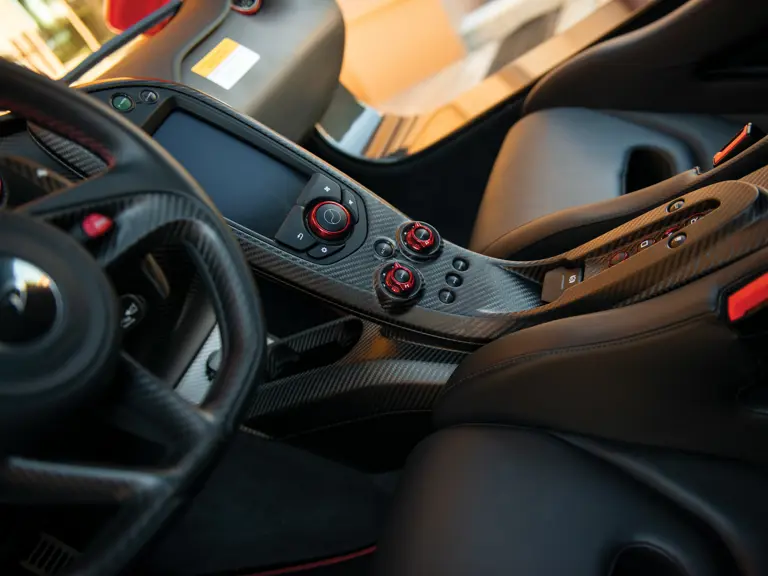
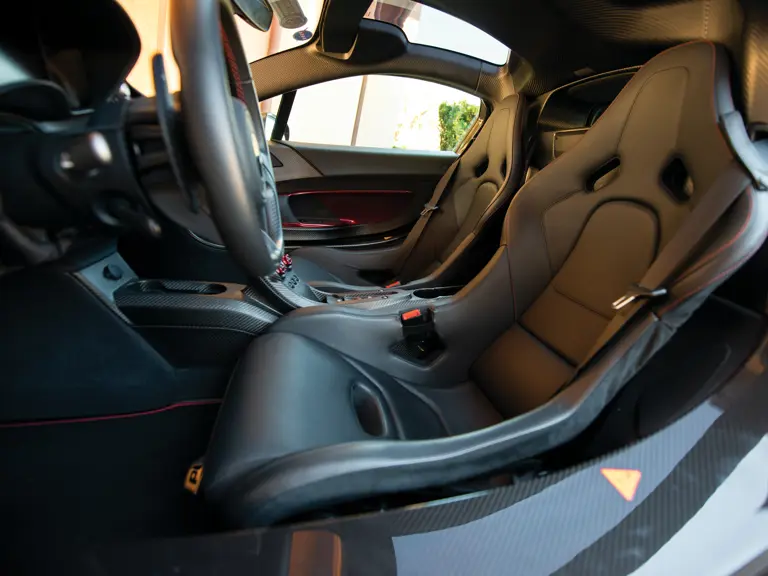
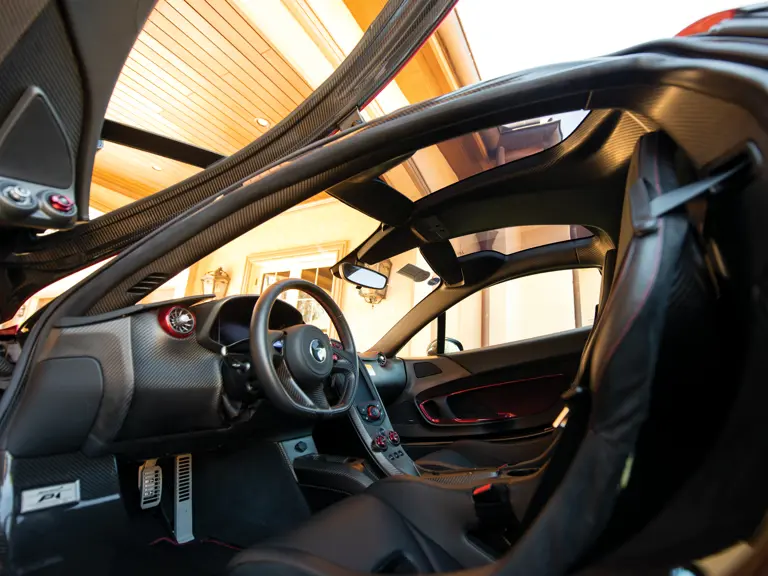
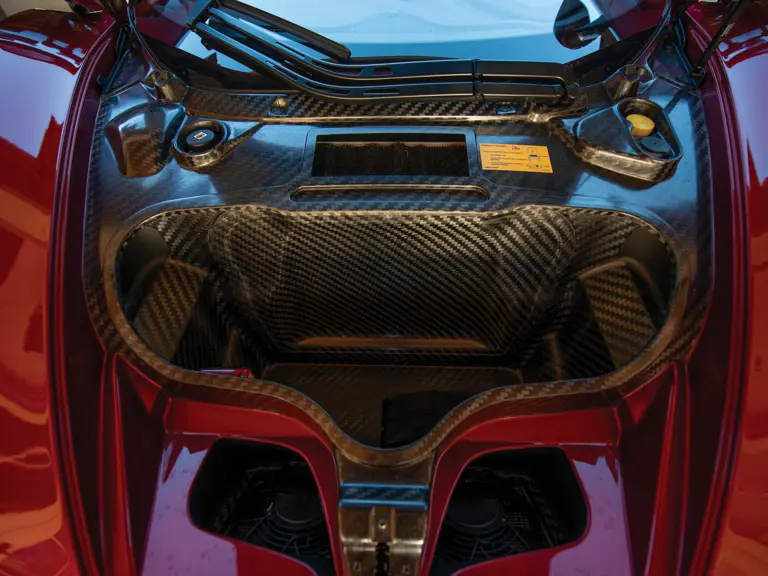
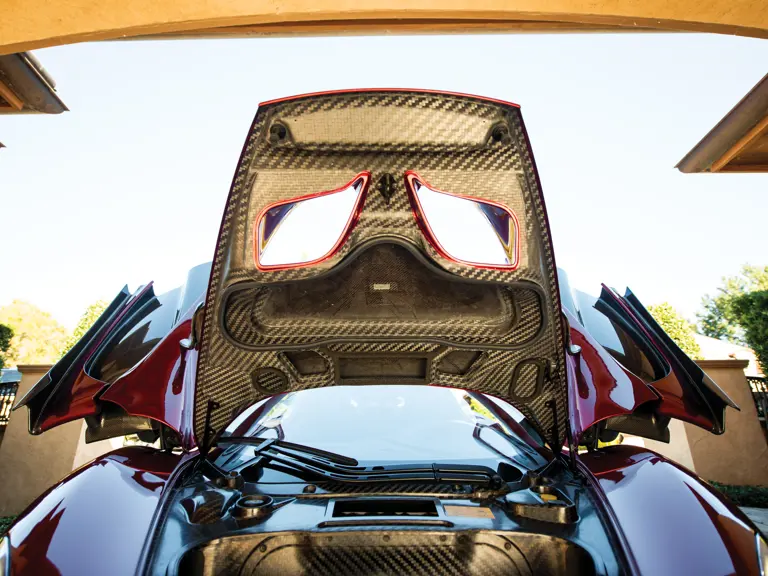
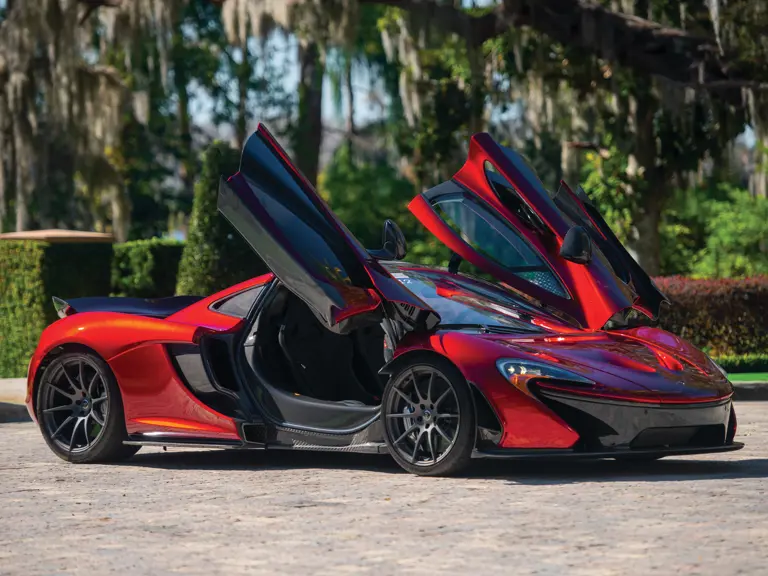
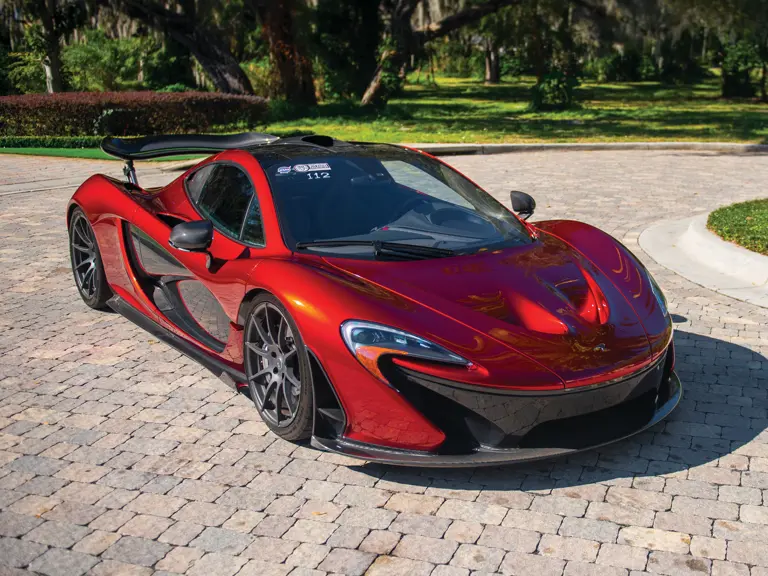
 | Amelia Island, Florida
| Amelia Island, Florida
